Please click for more information about each speaker (listed alphabetically). View the full conference agenda here.
Vineer Bhansali
 Vineer Bhansali
Vineer Bhansali
Founder and CIO, LongTail Alpha
Vineer Bhansali is chief investment officer of LongTail Alpha, which he founded in 2015. Previously, he was at PIMCO for sixteen years, serving the last eight as managing director and head of the Quantitative Portfolios Team, which he founded in 2008. He also managed all of PIMCO’s analytics from 2000 to 2010. Prior to that, he worked in the Fixed Income Arbitrage Group at Salomon Brothers, for the CSFB Proprietary Trading Group, and at Citibank, where he founded and managed the Exotic and Hybrid Options Trading Desk. The author of four books and numerous refereed papers on finance, Bhansali has been the recipient of awards including the Graham and Dodd Scroll Award and Time magazine’s college achievement award. Under his leadership, PIMCO received the Risk Manager of the Year Award in the asset management category in 2002 from Risk magazine. He has served on the Investment Committee of the American Physical Society and is currently on the Investment Committee of the Margaret A. Cargill Philanthropies. He holds bachelor’s and master’s degrees in physics from the California Institute of Technology, and a doctorate in theoretical physics from Harvard University.
Richard Evans
 Richard Evans
Richard Evans
Associate Professor of Business Administration, University of Virginia Darden School of Business
Richard Evans’ research deals broadly with investment decisions, and his current research projects explore fund manager compensation and incentives, exchange-traded funds, corporate political activity and stock performance, short-selling, and quantitative versus fundamental investment strategies. His work has been published in the Journal of Finance, the Journal of Financial Economics, and the Review of Financial Studies and has been cited by the financial press (the New York Times, the Wall Street Journal, The Economist, and Forbes magazine) as well as regulatory agencies (Securities and Exchange Commission, U.S. General Accounting Office, and the White House Council of Economic Advisors). He has presented his research to the SEC, Federal Reserve, Social Security Administration, and the American Finance Association. He currently serves on the Editorial Board of Financial Analysts Journal, has taught executive education courses for investment professionals from Merrill Lynch, Morgan Stanley, and Citizens Bank, and is the advisor to Darden Capital Management, Darden’s student run investment funds. He has been the recipient of a Santander Research Fellowship at Cambridge University and a Senior Research Fellowship at the Long-Term Investors think tank at the Università di Torino, and he has served as a visiting faculty member at Nova Universidade de Lisboa. He holds bachelor’s and master’s degrees in chemistry from the University of Utah, and a master’s degree and doctorate in finance from the Wharton School.
Geoffrey Garrett
 Geoffrey Garrett
Geoffrey Garrett
Dean; Reliance Professor of Management and Private Enterprise, The Wharton School
Geoffrey Garrett is dean, Reliance Professor of Management and Private Enterprise, and a professor of management at the Wharton School, and a professor of political science at the University of Pennsylvania. He became dean of the Wharton School in 2014, having been a member of the Wharton faculty in the Management Department from 1995 to 1997. Prior to his return to Penn, Garrett was dean of the business schools at both the University of Sydney and UNSW in his native Australia. He served as president of the Pacific Council on International Policy in Los Angeles and dean of the UCLA International Institute before his return to Australia in 2008. A highly cited international political economist, he has been a professor at Oxford, Stanford, and Yale universities. Garrett is a fellow of the Australian Academy of the Social Sciences, sits on the Advisory Boards of the Indian School of Business and the Tsinghua University School of Economics and Management, and is a winner of the Foreign Policy Association Medal and the Advance Global Australian Award. A well-respected commentator on global business, economics, and politics in major media outlets, he writes a regular blog as a LinkedIn Influencer. He holds a bachelor’s degree (Honors) from the Australian National University, and a master’s degree and doctorate from Duke University where he was a Fulbright Scholar.
Christopher Geczy
 Christopher Geczy
Christopher Geczy
Adjunct Professor of Finance; Academic Director, Jacobs Levy Center, The Wharton School of the University of Pennsylvania
Chris Geczy has been on the Finance Department faculty at the Wharton School since 1997. He is academic director of the Jacobs Levy Equity Management Center for Quantitative Financial Research and the Wharton Wealth Management Initiative at Wharton Executive Education. He previously worked for the Board of Governors of the Federal Reserve System, Washington, DC in its Division of Research and Statistics. He currently serves on Intel’s U.S. Retirement Plans’ Investment Policy Committee, is a co-editor of Financial Planning Review, and formerly served on the Editorial Board of the Journal of Alternative Investments and the Economic Advisory Board of NASDAQ. His work has appeared in numerous books and scholarly journals including the Journal of Finance, Journal of Financial Economics, and Journal of Political Economy, and been published by The Society for Industrial and Organizational Psychology. It has also been covered in the Wall Street Journal, the New York Times, NPR, on CNBC’s Squawk Box, and numerous other media outlets. Geczy has been the recipient of the Caesarea Prize for the Best Paper on Risk Management, the Moskowitz Prize, a Q Group Research Award, and the Best Elective Course Teaching Award in the Wharton Executive MBA Program. He has a bachelor’s degree in economics from the University of Pennsylvania and a doctorate in finance and econometrics from the Graduate School of Business at the University of Chicago.
Michael Gibbons
 Michael Gibbons
Michael Gibbons
Deputy Dean; I.W. Burnham II Professor of Investment Banking, The Wharton School
Michael Gibbons is the I.W. Burnham II Professor of Investment Banking and Deputy Dean of the Wharton School. As deputy dean, he oversees all aspects of the School relating to faculty, curriculum, and research. Before coming to Wharton in 1989, he was a tenured faculty member at the Stanford Business School. He served as chairperson of Wharton’s Finance Department from 1994 to 2006. He has taught Financial Derivatives, Fixed Income Securities, and Investment Management. An outstanding teacher, Gibbons has been recognized with Wharton’s Excellence in Teaching Award. His research and teaching focus on the valuation of financial securities, including financial derivatives and fixed income securities. His papers have been published in the American Economic Review, Econometrica, the Journal of Business, the Journal of Finance, Journal of Financial Economics, Journal of Monetary Economics, and the Review of Financial Studies. He has served as either an editor or associate editor for the major academic journals in finance. Gibbons earned his bachelor’s degree from Butler University, a master’s degree from the University of Chicago, and his doctorate in economics at the University of Chicago.
Paul Glasserman

Paul Glasserman
Jack R. Anderson Professor of Business, Columbia Business School
Paul Glasserman joined Columbia Business School in 1991. In addition to his faculty appointment, he currently chairs the Financial and Business Analytics Center within Columbia University’s Data Science Institute. His research addresses risk management, derivative securities, and quantitative investment strategies. Prior to joining Columbia, he worked for Bell Laboratories, and he has held visiting positions at Princeton University, NYU, and the Federal Reserve Bank of New York. He worked at the Office of Financial Research in the U.S. Treasury Department while on leave from Columbia from 2011 to 2012 and continues to serve as a part-time consultant there. Glasserman’s publications include the book Monte Carlo Methods in Financial Engineering, which received the 2006 Lanchester Prize. He is a past recipient of Risk Magazine’s Quant of the Year Award. He was senior vice dean of Columbia Business School from 2004 to 2008 and served as interim director of the Sanford C. Bernstein & Co. Center for Leadership and Ethics from 2005 to 2007. He holds a bachelor’s degree in mathematics from Princeton University and a doctorate in applied mathematics from Harvard University.
Robin Greenwood
 Robin Greenwood
Robin Greenwood
George Gund Professor of Finance and Banking, Harvard Business School
Robin Greenwood is the George Gund Professor of Finance and Banking at Harvard Business School. At HBS he is the faculty director of the Behavioral Finance and Financial Stability project, co-chairs the Business Economics PhD program, and serves as Finance Unit Head. He is a member of the Financial Advisory Roundtable of the Federal Reserve Bank of New York and a research associate at the National Bureau of Economic Research. Greenwood’s research is in behavioral and institutional finance, with a particular focus on “macro-level” market inefficiencies such as asset price bubbles. He has also co-authored research on the role of government and central banks in the debt markets. His research awards include the 2015 Brattle Group Distinguished Paper for an outstanding corporate finance paper published in the Journal of Finance, and the inaugural 2014 Jack Treynor Prize awarded by the Institute for Quantitative Research in Finance. Greenwood received a bachelor’s degree in economics and mathematics from the Massachusetts Institute of Technology and a doctorate in economics from Harvard University.
Kathleen Weiss Hanley
 Kathleen Weiss Hanley
Kathleen Weiss Hanley
Bolton-Perella Chair in Finance, Lehigh University
Kathleen Weiss Hanley joined the faculty of Lehigh University in 2015 as the Bolton-Perella Endowed Chair in Finance and is the director of the Center for Financial Services. From 2011 to 2013, she was the deputy chief economist of the U.S. Securities and Exchange Commission and the deputy director in the Division of Economic and Risk Analysis. There, she oversaw the integration of economic analysis into policy and rule-making across a broad range of topics in financial economics including the implementation of the Dodd-Frank Wall Street Reform and Consumer Protection Act, and the Jumpstart Our Business Startups Act. Prior to that, Hanley was a senior economist at the Board of Governors of the Federal Reserve System in the Risk Analysis section and a senior financial economist at the SEC. She has been on the faculty at the University of Maryland and at the University of Michigan. Her research has been published in leading finance journals such as the Journal of Finance, Journal of Financial Economics, and the Review of Financial Studies. She holds a bachelor’s degree from Indiana University and a doctorate from the University of Florida, both in finance.
Richard Herring
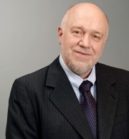 Richard Herring
Richard Herring
Jacob Safra Professor of International Banking, The Wharton School, University of Pennsylvania
Richard Herring is the Jacob Safra Professor of International Banking, director of the Wharton Financial Institutions Center, and a professor of finance at the Wharton School, where he has been a member of the faculty since 1972. He served as vice dean and director of the Wharton Undergraduate Division from 1995 to 2000 and director of the Lauder Institute from 2000 to 2006. Outside the university, he was co-chair of the U.S. Shadow Financial Regulatory Committee and executive director of the Financial Economists Roundtable. He is currently a member of the FDIC Systemic Resolution Advisory Committee, the Systemic Risk Council, and the Hoover Institution Working Group on Resolution Policy. He also serves as an independent director on the boards of Barclays Bank Delaware, the Deutsche DWS Funds, and the Aberdeen Japan Fund. Herring is the author of more than 150 articles, monographs, and books on various topics in financial regulation, international banking, and international finance. His research has been funded by grants from the National Science Foundation, the Ford Foundation, the Brookings Institution, the Sloan Foundation, the Council on Foreign Relations, and the Royal Swedish Commission on Productivity. He received his bachelor’s degree from Oberlin College and his master’s degree and doctorate from Princeton University.
Bruce Jacobs
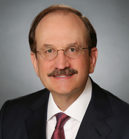 Bruce Jacobs
Bruce Jacobs
Principal and Co-Founder, Jacobs Levy Equity Management
Bruce Jacobs is principal and co-founder of Jacobs Levy Equity Management, where he is co-chief investment officer, portfolio manager, and co-director of research. Jacobs’ articles on equity management have appeared in Financial Analysts Journal, the Journal of Portfolio Management, the Journal of Investing, the Journal of Financial Perspectives, Japanese Security Analysts Journal, and Operations Research. He has received several Graham and Dodd Awards from Financial Analysts Journal, a Bernstein Fabozzi/Jacobs Levy Award from the Journal of Portfolio Management, and an Outstanding Article Award from the Journal of Investing. He is an associate editor of Journal of Trading and serves on the Journal of Portfolio Management Advisory Board, and has served on the Financial Analysts Journal Advisory Council. Jacobs is author of Too Smart for Our Own Good: Ingenious Investment Strategies, Illusions of Safety, and Market Crashes (forthcoming) and Capital Ideas and Market Realities: Option Replication, Investor Behavior, and Stock Market Crashes, co-author with Ken Levy of Equity Management: The Art and Science of Modern Quantitative Investing, 2nd ed., co-editor with Ken Levy of Market Neutral Strategies, and co-editor of The Bernstein Fabozzi/Jacobs Levy Awards: Five Years of Award-Winning Articles from The Journal of Portfolio Management, Volumes One through Three. He was a featured contributor to How I Became a Quant: Insights from 25 of Wall Street’s Elite. Jacobs has a bachelor’s degree from Columbia College, a master’s degree in operations research and computer science from Columbia University’s School of Engineering and Applied Science, a master’s degree from Carnegie Mellon University’s Graduate School of Industrial Administration, and a master’s degree in applied economics and a doctorate in finance from the Wharton School.
Kenneth Levy
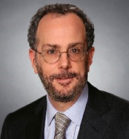 Kenneth Levy
Kenneth Levy
Principal and Co-Founder, Jacobs Levy Equity Management
Ken Levy is principal and co-founder of Jacobs Levy Equity Management, where he is co-chief investment officer, portfolio manager, and co-director of research. His articles on equity management have appeared in Financial Analysts Journal, the Journal of Portfolio Management, the Journal of Investing,
the Journal of Financial Perspectives, Japanese Security Analysts Journal, and Operations Research. He has received several Graham and Dodd Awards from Financial Analysts Journal and a Bernstein Fabozzi/Jacobs Levy Award from the Journal of Portfolio Management. Levy is co-author with Bruce Jacobs of Equity Management: The Art and Science of Modern Quantitative Investing, 2nd ed., co-editor with Bruce Jacobs of Market Neutral Strategies, and co-editor of The Bernstein Fabozzi/Jacobs Levy Awards: Five Years of Award-Winning Articles from The Journal of Portfolio Management, Volumes One through Three. He was a featured contributor to How I Became a Quant: Insights from 25 of Wall Street’s Elite. Levy has a bachelor’s degree in economics from Cornell University, an MBA and a master’s degree in business economics from the Wharton School, and completed all requirements short of the dissertation for a doctorate at Wharton. He is a CFA charterholder and has served on the CFA Candidate Curriculum Committee, POSIT Advisory Board, and the investment board of a community foundation.
Richard Lindsey
 Richard Lindsey
Richard Lindsey
Co-Head of Liquid Alternatives, Windham Capital Management
Richard Lindsey is a managing partner of Windham Capital Management and co-chief investment officer for Windham Liquid Alternatives. Previously, he served as chief investment strategist, liquid alternatives for Janus Capital. In this role, he developed and co-managed the liquid alternative strategies and was also a member of the Janus Capital Group Global Allocation Committee. Prior to that, he was a principal of the Callcott Group, LLC, as well as president of Bear, Stearns Securities Corporation and a member of the Management Committee of The Bear Stearns Companies, Inc. Before joining Bear Stearns, Lindsey served as director of market regulation and chief economist for the U.S. Securities and Exchange Commission, and prior to that, was a finance professor at the Yale School of Management. Lindsey has also served on several corporate boards including The Investment Fund for Foundations (TIFF), the Options Clearing Corporation, the International Securities Exchange, and Strike Technologies. He holds a bachelor’s degree in chemical engineering from Illinois Institute of Technology, a master’s degree in chemical engineering from the University of California, Berkeley, an MBA from the University of Dallas, and a doctorate in finance from the University of California, Berkeley.
Adam Reed
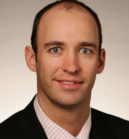 Adam Reed
Adam Reed
Professor of Finance and Julian Price Distinguished Scholar of Finance, UNC Kenan-Flagler Business School
Adam Reed researches short selling, equity lending, capital markets, and mutual funds. His work has been published in the Journal of Finance, the Journal of Financial Economics, and the Review of Financial Studies and featured in several books. It has also been cited by the Wall Street Journal, Bloomberg, and the New York Times. In addition to his faculty appointment at UNC, he has served as a research consultant for the U.S. Securities and Exchange Commission and worked as a research assistant for the Board of Governors of the Federal Reserve System. Reed was named one of “The World’s Best 40 B-School Profs Under the Age of 40” by Poets & Quants and Fortune. He is an award-winning teacher and researcher and has received research grants from Q Group and BNP Paribas. He has been a member of the board of academic directors for Quadriserv Inc., and he has served on the board of directors for Polyglot and the N.C. State Employees Credit Union Local Advisory Board. Reed received a bachelor’s degree in applied mathematics and economics with honors from the University of California at Berkeley, and a master’s degree and doctorate in finance from the Wharton School.
Matthew Richardson
 Matthew Richardson
Matthew Richardson
Charles E. Simon Professor of Applied Economics and Professor of Finance, Leonard N. Stern School of Business, New York University
Matthew Richardson is the Charles E. Simon Professor of Applied Economics in the Finance Department at the Leonard N. Stern School of Business at New York University. Prior to being at NYU, Richardson was an assistant professor of finance at the Wharton School. In addition, he is a research associate at the National Bureau of Economic Research. Richardson has done research in many areas of finance, including both theoretical and empirical work. His research has been published in the American Economic Review, the Journal of Finance, the Review of Financial Studies, and the Journal of Financial Economics, among other places. He was an associate editor of the Journal of Finance, Review of Financial Studies, and Journal of Financial and Quantitative Analysis. He co-edited two books on the financial crisis titled, Restoring Stability: How to Repair a Failed System and Regulating Wall Street: The Dodd-Frank Act and the New Architecture of Global Finance, and is a co-author of Guaranteed to Fail: Fannie Mae, Freddie Mac and the Debacle of Mortgage Finance. Richardson completed both his bachelor’s and master’s degrees in economics concurrently at the University of California at Los Angeles. He received his doctorate in finance from the Graduate School of Business at Stanford University.
Robert Shiller
 Robert Shiller
Robert Shiller
Sterling Professor of Economics, Yale University
Robert Shiller is Sterling Professor of Economics, Department of Economics and Cowles Foundation for Research in Economics, Yale University, and a professor of finance and fellow at the International Center for Finance, Yale School of Management. He is also the co-founder and chief economist of MacroMarkets LLC and has been a research associate for the National Bureau of Economic Research since 1980. Shiller has written on financial markets, financial innovation, behavioral economics, macroeconomics, real estate, and statistical methods, and on public attitudes, opinions, and moral judgments
regarding markets. His cyclically adjusted price-to-earnings (CAPE) ratio is widely used to assess whether the market is overvalued or undervalued. Along with Karl Case, he developed the Case-Shiller index, which is now used by S&P to track changes in the value of residential real estate. In 2013, he was awarded the Nobel Prize in Economic Sciences along with Eugene Fama and Lars Peter Hansen for their empirical analysis of asset prices. He served as vice president of the American Economic Association in 2005, president of the Eastern Economic Association from 2006 to 2007, and president of the American Economic Association in 2016. He writes for regular columns on finance and economics for Project Syndicate and the New York Times. Shiller holds a bachelor’s degree from the University of Michigan and a doctorate in economics from the Massachusetts Institute of Technology.
Jeremy Siegel
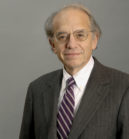 Jeremy Siegel
Jeremy Siegel
Russell E. Palmer Professor of Finance, The Wharton School, University of Pennsylvania
Jeremy Siegel has been a member of the Finance Department faculty at the Wharton School since 1976. He also serves as academic director of Wharton’s Securities Industry Institute and senior investment strategy advisor for WisdomTree Investments. He previously taught at the University of Chicago’s Graduate School of Business and was a research fellow for the Federal Reserve Bank of Philadelphia. Siegel has written and lectured extensively about the economy and financial markets. He has published two books, The Future for Investors and Stocks for the Long Run, the latter of which was named among
the 10 best investment books of all time by the Washington Post and Businessweek. He is a regular contributor to the financial news media, appearing on CNN, CNBC, and NPR. Siegel has received numerous awards including best business school professor in a worldwide ranking published by Businessweek in 1994, the Lindback Distinguished Teaching Award, the Graham and Dodd Award from Financial Analysts Journal, the Bernstein Fabozzi/Jacobs Levy Award from the Journal of Portfolio Management, and the Nicholas Molodovsky Award from the CFA Institute. He holds a bachelor’s degree in mathematics and economics from Columbia University and a doctorate in economics from the Massachusetts Institute of Technology.
Chester Spatt
 Chester Spatt
Chester Spatt
Pamela R. and Kenneth B. Dunn Professor of Finance, Tepper School of Business, Carnegie Mellon University
Chester Spatt is the Pamela R. and Kenneth B. Dunn Professor of Finance at the Carnegie Mellon Tepper School of Business, where he has taught since 1979. He is also currently the Golub Distinguished Visiting Professor of Finance at the MIT Sloan School of Management. In his research, Spatt has analyzed market structure and trading, pricing and valuation, and the impact of information. His coauthored 2004 paper in the Journal of Finance on asset location won TIAA-CREF’s Paul Samuelson Award for the Best Publication on Lifelong Financial Security. He has served as executive editor and as one of the founding editors of the Review of Financial Studies, president and a member of the Founding Committee of the Society for Financial Studies, and president of the Western Finance Association. He was chief economist of the U.S. Securities and Exchange Commission from 2004 to 2007. He also served as a member of the SEC’s Equity Market Structure Advisory Committee, the Federal Reserve’s Model Validation Council, and the Advisory Committee of the Office of Financial Research, and currently serves on the Systemic Risk Council. Spatt earned his bachelor’s degree from Princeton University and his doctorate from the University of Pennsylvania, both in economics.


